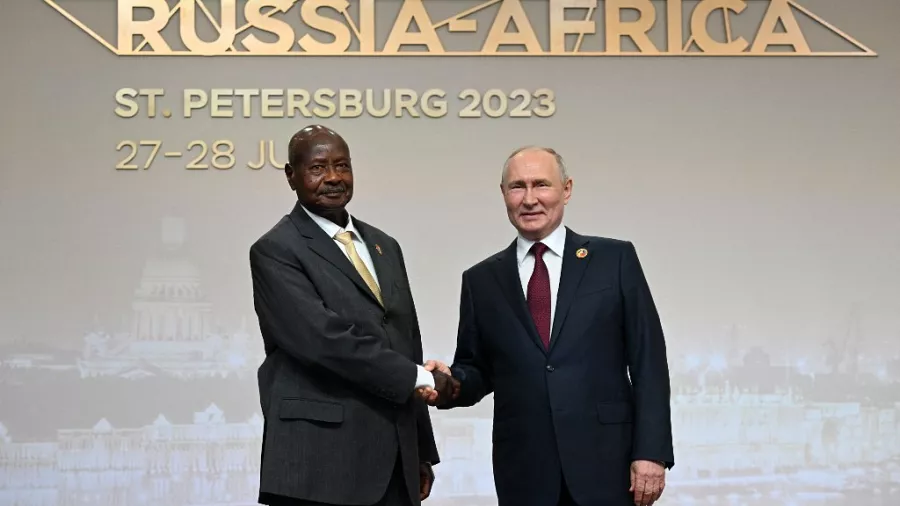Uganda’s Vice President Jessica Alupo has called for deepened collaboration with the BRICS bloc, describing it as a promising pathway for Africa’s economic transformation, global influence, and political relevance.
In an exclusive interview with Russia’s Sputnik Africa, Alupo revealed Uganda’s support for the emerging BRICS-driven global economic order, expressing confidence that the bloc could offer alternatives to the Western-dominated financial infrastructure that has often placed African economies at a disadvantage.
“Discussions have been done by Uganda or African countries with those commanding the international economic infrastructure and payment systems,” Alupo said.
Uganda became a partner country in BRICS in January 2025. The Vice President believes Uganda’s association with the bloc provides immense benefits including her strategic security now and in the future.
She added, “But more often than not, many African countries are burdened by heavy borrowing conditions which are not friendly… We need to industrialize as fast as we can. I think BRICS can offer a solution.”
Alupo emphasized the potential of BRICS to develop an alternative international monetary and payment system tailored to the unique needs and realities of the Global South.
She urged the bloc to implement a new global financial architecture that is inclusive, equitable, and reflective of developing countries’ interests.

Uganda’s President Yoweri Museveni (L) and his Russian counterpart Vladimir Putin during the Russia-Africa summit. Uganda and Russia enjoy warm relations
OPENING MARKETS AND INVESTMENT OPPORTUNITIES
The Vice President stressed that BRICS membership would open Uganda up to expanded trade and investment opportunities, enhanced access to markets in partner states, and more robust political engagement at the global level.
“Economically, BRICS will enhance us in terms of access to markets… investment opportunities, tourism potential, and industrialization,” she explained.
“Normally, when a bloc like that is formed, there are areas of cooperation where tariffs and trade barriers are slashed off.”
Alupo also highlighted the security and diplomatic benefits of being part of such a bloc, saying Uganda’s engagement aligns with the principles of multilateralism and sovereignty.
RUSSIA-UGANDA RELATIONS
Turning to the bilateral front, Alupo spoke of Uganda’s longstanding ties with Russia, tracing the relationship back to Uganda’s independence in 1962. She noted several areas of progress and cooperation including health, investment, education, and technology transfer.
“Russia donated mobile laboratories to Uganda, which have helped us examine issues like mpox and Ebola. We also have Ugandan companies exporting roasted coffee to Russia. We expect more support from Russia in setting up value addition facilities here at home,” she said.
The Vice President also praised ongoing collaboration in ICT, strategic security, and human resource development, particularly in the science and technology sectors.
Alupo commended Sputnik Africa’s media role on the continent, citing its objectivity and respect for national sovereignty.
“Sputnik is very popular and supported by most of the African countries… It does not interfere with the internal matters of sovereign countries,” she stated.
In February, Sputnik officially launched its African bureau in Addis Ababa, Ethiopia with its executives heralding the move as one meant to strengthen Russia’s cooperation with African countries.